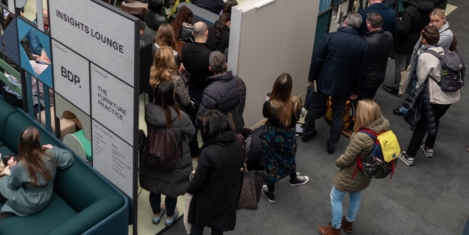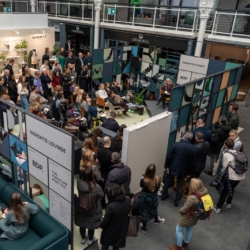To provide the best experiences, we use technologies like cookies to store and/or access device information. Consenting to these technologies will allow us to process data such as browsing behaviour or unique IDs on this site. Not consenting or withdrawing consent, may adversely affect certain features and functions.
The technical storage or access is strictly necessary for the legitimate purpose of enabling the use of a specific service explicitly requested by the subscriber or user, or for the sole purpose of carrying out the transmission of a communication over an electronic communications network.
The technical storage or access is necessary for the legitimate purpose of storing preferences that are not requested by the subscriber or user.
The technical storage or access that is used exclusively for statistical purposes.
The technical storage or access that is used exclusively for anonymous statistical purposes. Without a subpoena, voluntary compliance on the part of your Internet Service Provider, or additional records from a third party, information stored or retrieved for this purpose alone cannot usually be used to identify you.
The technical storage or access is required to create user profiles to send advertising, or to track the user on a website or across several websites for similar marketing purposes.
 The piece I wrote on workplace bullshit came in for quite a bit of attention when it was published and also meant I was pointed to this excellent article on how to spot it when you see it. Lots is said about the skills we’ll need to cope with the challenges of the current Century, but this is perhaps one of the most important. Especially trying to spot it in ourselves. Paradoxically, but understandably, we already seem reasonably able to spot it in our politicians and other people we don’t quite trust. (more…)
The piece I wrote on workplace bullshit came in for quite a bit of attention when it was published and also meant I was pointed to this excellent article on how to spot it when you see it. Lots is said about the skills we’ll need to cope with the challenges of the current Century, but this is perhaps one of the most important. Especially trying to spot it in ourselves. Paradoxically, but understandably, we already seem reasonably able to spot it in our politicians and other people we don’t quite trust. (more…)










 We know, and have for a long time, that the workplace is in a state of near constant flux. The meteor strike of lockdown was an accelerant, not a deviation. It also laid bare -yet again – the faulty assumption that there is some sort of general evolution towards an idealised version of the office or conversely the universal adoption of remote or hybrid working, whatever it is. That is why we see so many people routinely willing to suspend their critical facilities to make extravagant and even absurd predictions about the office of the future or even the death of the office.
We know, and have for a long time, that the workplace is in a state of near constant flux. The meteor strike of lockdown was an accelerant, not a deviation. It also laid bare -yet again – the faulty assumption that there is some sort of general evolution towards an idealised version of the office or conversely the universal adoption of remote or hybrid working, whatever it is. That is why we see so many people routinely willing to suspend their critical facilities to make extravagant and even absurd predictions about the office of the future or even the death of the office.






 You don’t have to look far to find misinformation. Just a few weeks ago, amid the aftermath of the coup in Niger, online platforms were being
You don’t have to look far to find misinformation. Just a few weeks ago, amid the aftermath of the coup in Niger, online platforms were being 














January 22, 2024
London’s office market is reshaping the city and the way people experience the workplace
by Sam Mardon • Comment, Property